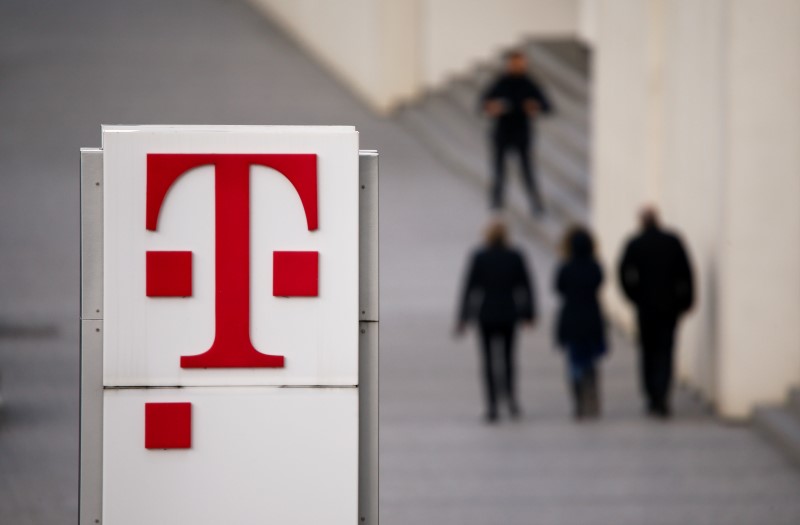FRANKFURT (Reuters) - Germany's telecoms regulator will try again to persuade the European Commission to approve Deutsche Telekom (DE:DTEGn) plans to use its existing copper wiring to connect homes and offices to its high-speed fibre-optic broadband network.
Competitors including Vodafone (L:VOD) complained the plan would leave them dependent on the Deutsche Telekom network and unable to tailor how they attracted customers.
The technology, known as "vectoring", only works when applied to a whole bundle of copper cables, meaning that individual lines cannot be unbundled physically to give access to alternative operators.
Rivals would get 'virtual' access to the 'local loop' copper network, but the Commission said this arrangement would deny the degree of control necessary to differentiate their retail offers from those of Deutsche Telekom.
With Deutsche Telekom owning the network and rivals paying to get access to it, competitors would struggle to offer choices on price or quality.
The German regulator said it had withdrawn its proposal and would submit a new one early next week.
The European Commission said in a statement: "The Commission was concerned that the proposal would not be in line with EU telecoms rules, which encourage competition on telecoms markets, technological development and ultimately a high quality of services for consumers."
Former national network monopolies such as Deutsche Telekom and Britain's BT (L:BT) say the application of new copper-based G.fast technology is a far cheaper and quicker way to get more people hooked up to high-speed broadband than aiming to run new fibre into every building.
But rivals say that an independent fibre-optic network would give all players equal chances.
They have warned that initiatives such as vectoring could slow the roll-out of much faster, but also more expensive, fibre-optic connections. In Germany alone the cost of such a network is estimated at up to 80 billion euros (£63.23 billion).
Deutsche Telekom's Chief Executive Tim Hoettges told shareholders last month that its competitors should stop moaning and start investing.

The German regulator had approved Deutsche Telekom's plan last year to use vectoring technology to double the bandwidth of the existing copper lines running from a fibre-connected central distribution point to give download speeds of up to 100 Mbps instead of running fibre all the way into homes and offices.